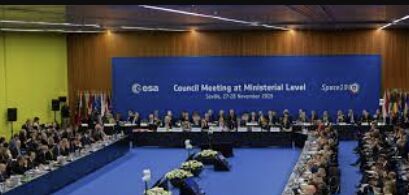European Space Summit in Seville: Tackling Challenges and Ambitions in Space Exploration
European ministers gather in Seville to discuss the challenges facing Europe's space ambitions, including the rocket launcher crisis and competition from other global players. Director General of the European Space Agency proposes a competition among European companies to develop a cargo transport service to the ISS. Europe seeks to adopt NASA's approach of purchasing launches from manufacturers. Delays to the Ariane 6 rocket and lack of independent launch capabilities are key concerns. France and Germany are absent from the summit. Decisions on funding and solutions are awaited.
European Space Summit in Seville to Address Challenges and Ambitions in Space Exploration European ministers are convening in Seville this week to discuss the future of Europe's ambitions in space exploration and address the ongoing rocket launcher crisis. The summit comes at a critical time for European space efforts, as delays to the new Ariane 6 rocket have left Europe without an independent means of launching missions into space. Furthermore, Europe is facing stiff competition from the United States, China, India, and private companies in the global space sector.
Today, we will put forward our ambitious plans to increase European autonomy, leadership and responsibility in space at the #SpaceSummit in Seville.
— ESA (@esa) November 6, 2023
📺 Join us live TODAY here on X or over on #ESAWebTV from 13:00 GMT/14:00 CET 👉 https://t.co/F3Y53FHkry pic.twitter.com/1OuPyH2793
In an attempt to bolster Europe's position in space, Director General of the European Space Agency (ESA), Josef Aschbacher, proposed a competition among innovative European companies to develop a service that can transport cargo to the International Space Station (ISS) by 2028, with the potential to expand to crewed missions and other destinations beyond low Earth orbit. Aschbacher highlighted the importance of establishing a sustained presence on the Moon, as recommended by experts in a report commissioned by the ESA earlier this year. The ESA is looking to adopt a new approach based on the model of NASA, where launches are purchased from manufacturers rather than Europe developing its own launch programs.
Aschbacher assured that public funding for the initial phase has already been secured and will be supplemented with private contributions. The summit will also address the lack of rocket launchers in Europe, which has previously relied on Russia and the US for launches. Europe's next-generation Ariane 6 rocket is facing delays, with its inaugural flight now scheduled for next year.
France and Germany, the two largest contributors to the ESA, did not attend the summit but discussions among member states are expected to focus on future funding for Earth observation missions that collect climate change data. Furthermore, ministers will tackle the challenge of launching rockets independently and explore possible solutions and funding options. The decisions from the summit are expected to be announced in a press conference later this week, shedding light on Europe's future in space exploration.




